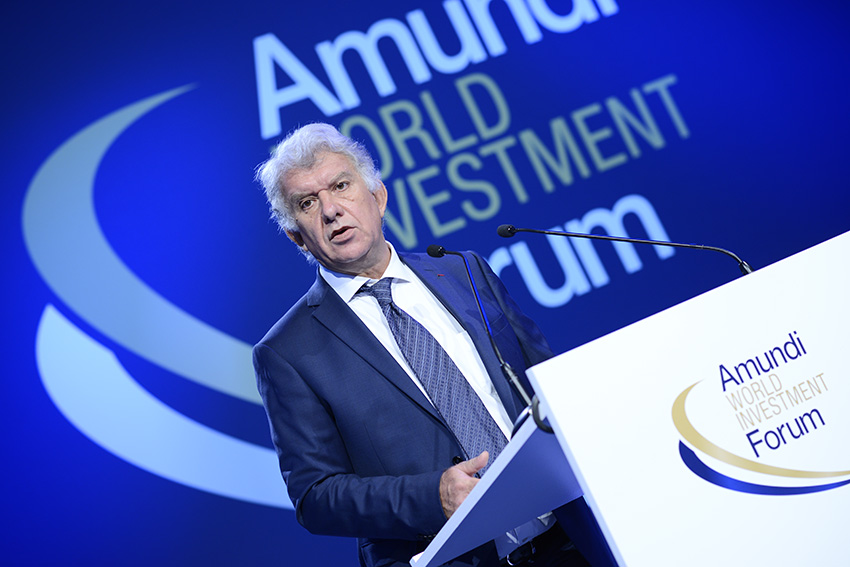Amundi and the Asian Infrastructure Investment Bank (AIIB) have launched a new Climate Change Investment Framework. As announced by both firms in a press release, this benchmark investor tool will for the first time holistically assess climate change risks and opportunities in line with the three objectives of the Paris Agreement at the issuer-level.
Endorsed by Climate Bonds Initiative, a major international certifier and industry thought leader in the green and climate bond market, the framework translates the three key objectives of the Paris Agreement into fundamental metrics, equipping investors with a new tool to assess an issuer’s level of alignment with climate change mitigation, adaptation and low-carbon transition objectives.
While groups of leading institutional investors have responded to the climate challenge by integrating climate change into investment processes, AIIB and Amundi highlighted that this tool takes a holistic approach that current private capital mobilization efforts lack.
“Equity capital markets currently focus on thematic funds and commonly face strong sector bias, while low-carbon indexes have a pronounced focus on mitigation efforts. In fixed income, green bonds have been the main climate finance solution for debt capital markets, but they do not consider exposure to climate investment risks and opportunities from the viewpoint of an issuer’s entire balance sheet”, they stated in the press release.
Extra financial impact
Investors can expect portfolios aligned with this framework to deliver a potential financial impact by benefiting from any future repricing of climate change risks and opportunities in the capital market. It also enables them to measure issuer performance against the three objectives of the Paris Agreement, which allows investors to systematically include in their investment portfolio A list issuers (those that are already performing well on all three objectives) and B list issuers (those that are moving in the right direction but are not in the A list yet). An investment strategy targeting both A and B List issuers should be more resilient to climate change risk and more exposed to opportunities not yet priced in by the market.
In addition, they pointed out that the framework also delivers extra financial impact as it is designed to encourage the integration of climate change risks and opportunities into business practices by targeting the engagement of so-called “B-List” issuers to help them transition to “A-List” credentials.
Yves Perrier, CEO of Amundi, said they are proud to launch this tool with AIIB as they continue to make strides in the field of climate finance. “Mobilizing key stakeholders in supporting the Paris Agreement in Asia is in line with Amundi’s commitment to ESG investing and reflects our extensive commitment to the region. This new Framework will further help the investment community address climate change through the mobilization of capital to emerging markets where it is much needed”.
Jin Liqun, AIIB President and Chair of the Board of Directors, commented at the Climate Bonds Initiative international conference that in launching this framework they show their “commitment to playing an important role in the battle against climate change, by contributing to strengthening market capacity and driving the green agenda in Asia”.



